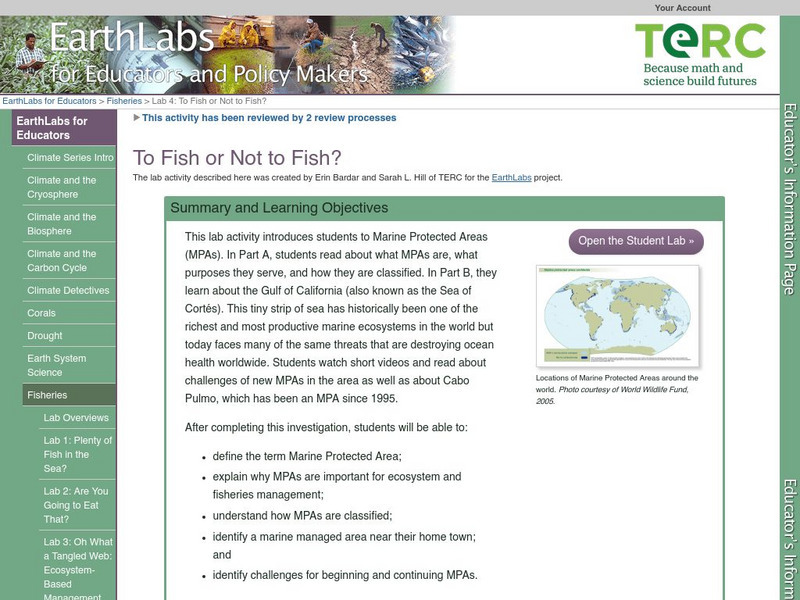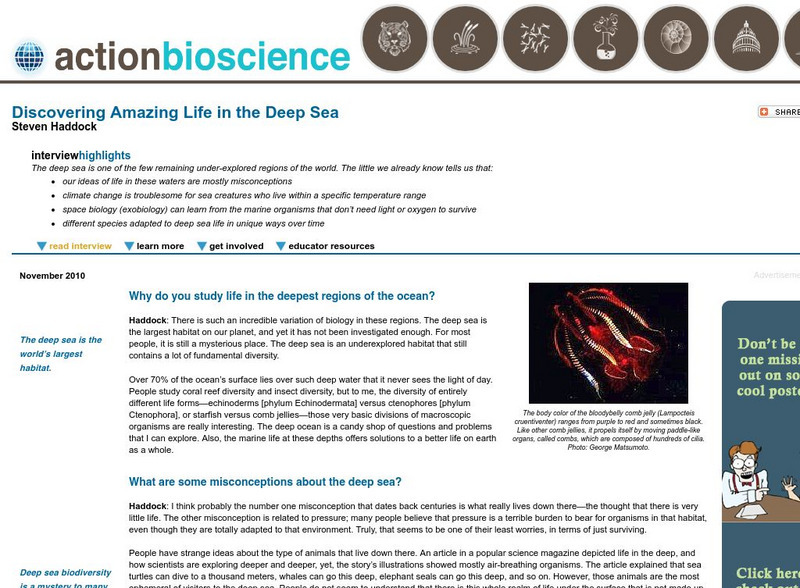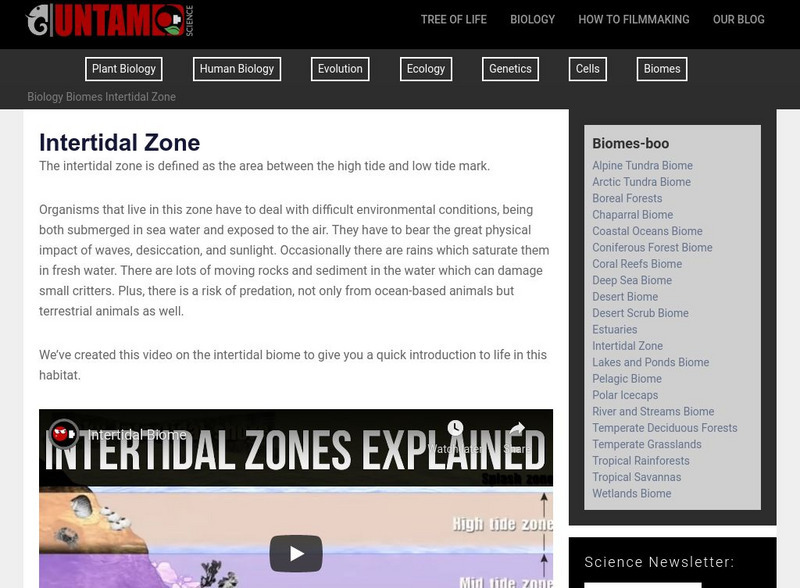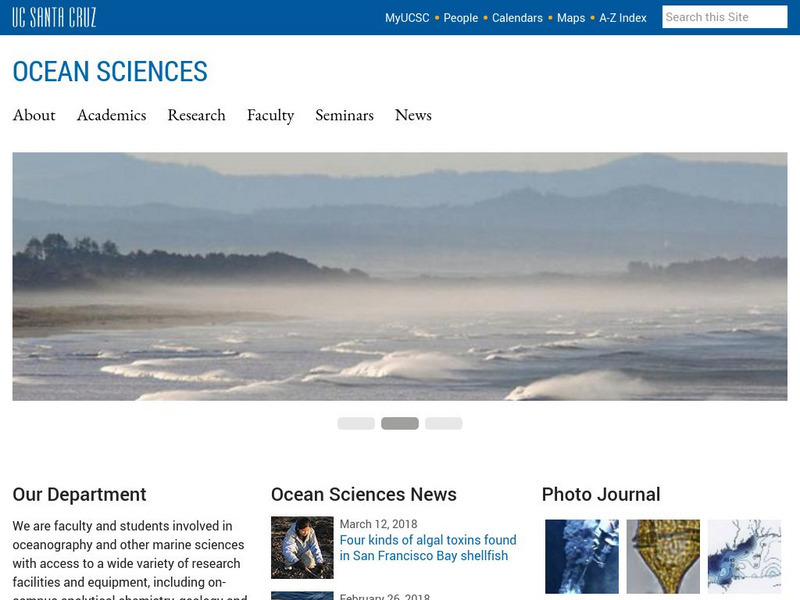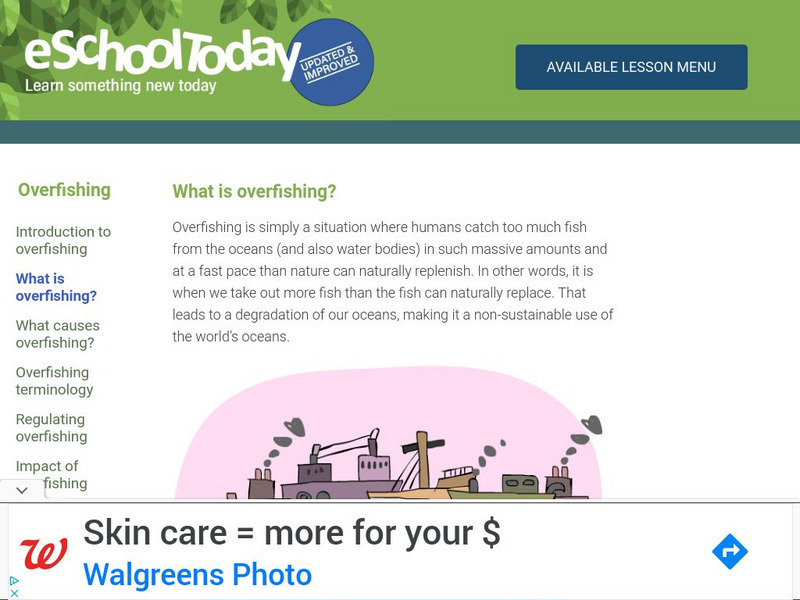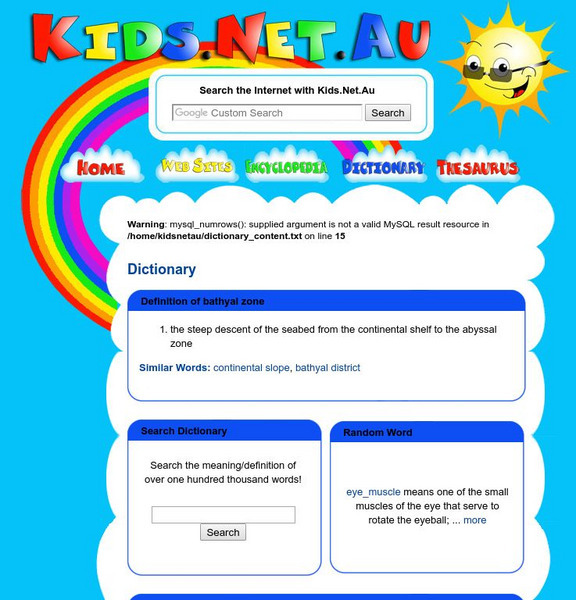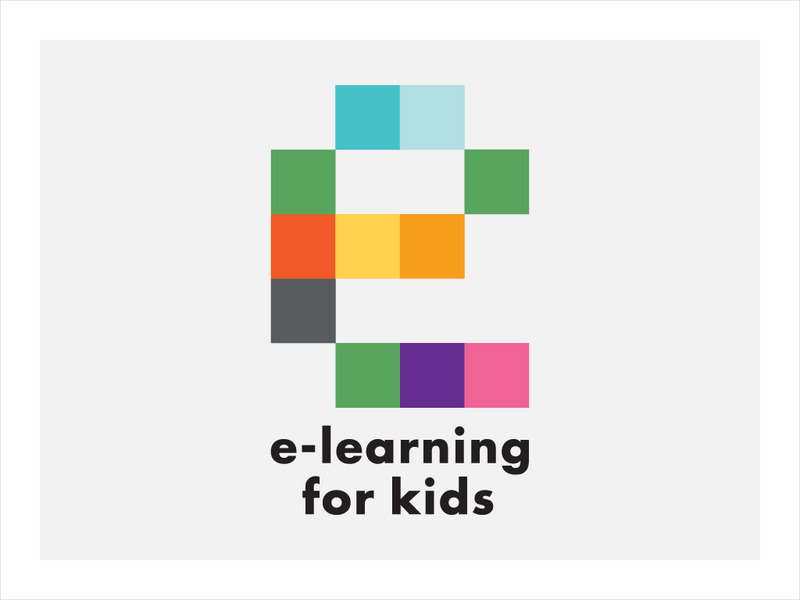Science Education Resource Center at Carleton College
Serc: Lab 4: To Fish or Not to Fish?
A lab experiment in a series of experiments that investigates fisheries. In this activity, students use an ecosystem-based management tool known as Marine Protected Areas (MPAs) to manage fisheries. This lesson also includes the students...
Science Education Resource Center at Carleton College
Serc: Lab 7: Nitrates and Phosphates and Algae, Oh My!
A lab experiment, in a series of experiments, that investigates fisheries. In this lab, students test the effects of fertilizers and other pollutants on a model ecosystem. Students also examine 2 years of ocean color (chlorophyll...
The Association of the British Pharmaceutical Industry
Abpi: Human and Animal Habitats
An interactive learning game where students answer whether or not certain environments would be suitable for different animals. Printable worksheets are available for review at the end of the activity.
Enchanted Learning
Enchanted Learning: Biomes
Discover the hidden treasures in the different habitats on the earth! The earth is filled with many biomes. Examples of different biomes are listed and include hyperlinks to additional information such as the animals found there.
Globio
Glossopedia: Environments
This article defines "environment" as a collection of animals and plants in a specific landscape and climate. The concept of differing types of environments is introduced. The impact of humans on environments and all environments'...
American Institute of Biological Sciences
Action Bioscience: Discovering Amazing Life in the Deep Sea
A research biologist at the Monterey Aquarium and a professor at UC-Santa Cruz is interviewed to explain the studies done in the deep sea. Steven Haddock addresses the purpose of uncovering the mysteries of life and environment lying out...
Untamed Science
Untamed Science: Biology: World Biomes: Intertidal Zone: Aquatic Biome
Learn about the flora and fauna of the intertidal aquatic zone and the characteristics that describe this aquatic biome through reading and watching video clips. [6:42]
Other
Institute of Geophysics and Planetary Physics
Studies involving earth sciences, marine sciences and oceanography.
Curated OER
Coral Reef
Discover more about the underocean environment at this site that surveys animals, environmental factors such as light and temperature, currents, animals, plants, and the like.
eSchool Today
E School Today: Your Cool Tips on Overfishing
Describes the issue of overfishing, its causes, its impact on our ocean fish resources and ecosystems, and efforts to combat it.
E-learning for Kids
E Learning for Kids: Science: Australia: How Do Environments Affect Living Things?
Noah lives near the Great Barrier Reef. Go explore this diverse habitat with him.
Other
Discovery Kids: Jimi Rock Undersea Adventures
Students can learn about the world's oceans in this safe, online, undersea world. Visit virtual dive sites, create characters, and play aquatic-themed games. Students can play some games free, or they can sign up for a membership for a...
National Earth Science Teachers Association
Windows to the Universe: Climate Changes With Latitude
A map showing the division of the world into eight biomes based on different climate types around the world. There are links to more information about each biome.
Sophia Learning
Sophia: Oceans
An audio podcast highlighting the numerous marine ecosystems in the oceans. [1:50]
E-learning for Kids
E Learning for Kids: Science: Antilles: What Are the Environmental Factors of a Habitat?
Join Sam on his journey to the bottom of the sea. Explore beautiful animals living in the sea, and learn about the importance of a well-balanced habitat.
California Academy of Sciences
California Academy of Sciences: Science in Action: Philippine Biodiversity Expedition
The Academy's expedition to the Philippines discovered unusual treasures at great depths.
BiologyWise
Biology Wise: Examples of Parasitism
Explains what parasitism is and provides a few examples of parasitic relationships.
ClassFlow
Class Flow: Plant and Animal Habitats
[Free Registration/Login Required] This lesson explains plant and animal habitats with brilliant pictures and photos. It also includes discussion and non-Activote questions.
Curated OER
Unesco: Spain: Ibiza, Biodiversity and Culture
Ibiza provides an excellent example of the interaction between the marine and coastal ecosystems. The dense prairies of oceanic Posidonia (seagrass), an important endemic species found only in the Mediterranean basin, contain and support...
Curated OER
Unesco: France: Pitons, Cirques and Remparts of Reunion Island
The Pitons, cirques and remparts of Reunion Island site coincides with the core zone of La Reunion National Park. The property covers more than 100,000 ha or 40 % of La Reunion, an island comprising two adjoining volcanic massifs located...
Other popular searches
- Ocean Ecosystems Animals
- Arctic Ocean Ecosystems
- Ocean Ecosystems Activities
- Five Ocean Ecosystems
- Ocean Ecosystems Worksheets


